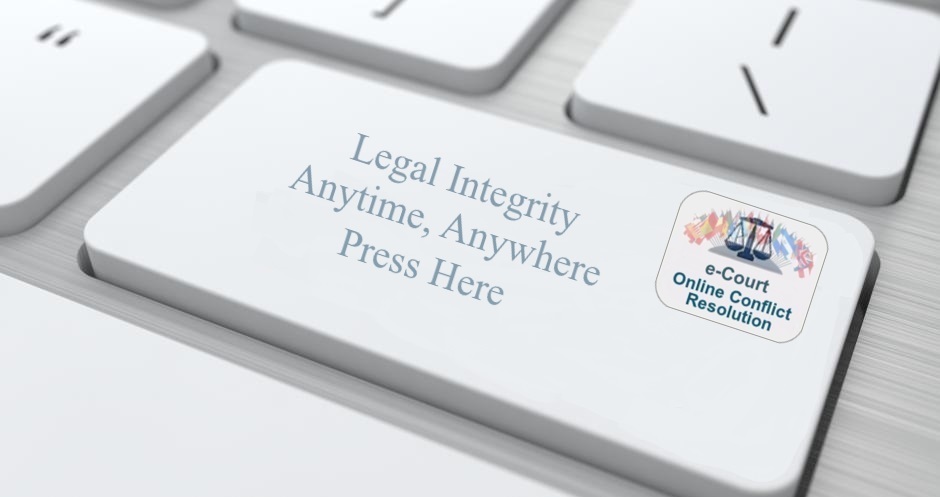CASE MANAGEMENT INTRODUCTION:
Law firms use legal case management software to house vital case-related documents and consolidate all case-related information in one easily accessible location. Instead of information being scattered across multiple different desks, attorneys have a single electronic repository in which they can gather documents, track billable time, and make notes on both clients and cases. Case management systems are generally used as part of a larger suite of legal software, including law practice management software, that a law firm can use to manage every part of its practice.
Why Use Legal Case Management Software?
Legal case management software can play a vital role in improving the efficiency and efficacy of firms and the legal professionals that run them. There are a host of benefits that attorneys and law firms can reap by implementing a case management system, from better communication to improved organization. Multimillion-dollar practices and small law firms alike can take advantage of the eight key benefits that legal case management software provides, outlined below.
Facilitate remote work – Attorneys’ time is valuable, both in terms of their hourly billable rate and the stakes riding on their work. Case management solutions allow attorneys to access their cases and work on them from outside of the office, maintaining accurate billing records all the while. This feature is especially valuable if a law firm has attorneys frequently on the road traveling to different clients. With a case management system, time spent on the road is not lost; instead, it can be turned into value-adding hours during which lawyers can work on their caseload.
Automate document assembly – Some solutions provide document automation and creation functionality, which saves legal professionals time. A legal practice looking to boost efficiency would do well to implement a solid case management solution and take advantage of the process automation it can carry out. Document assembly automation also ensures that all of your practice’s documents are the same, helping maintain consistency through all processes.
Keep to deadlines – Legal case management software gives legal professionals a single application to keep their to-do lists of tasks and events related to a given case. This holistic case view ensures that attorneys stick to case deadlines, as nothing is hidden away in forgotten corners.
Keep to deadlines – Legal case management software gives legal professionals a single application to keep their to-do lists of tasks and events related to a given case. This holistic case view ensures that attorneys stick to case deadlines, as nothing is hidden away in forgotten corners.
Boost client communication – Some case management systems offer a client portal feature. Through this portal, directly within the application, attorneys can communicate directly with their clients and gain quicker access to information they may need. This builds lines of communication, prevents miscommunication, and fosters the development of trust between a law firm and client.
Improve case development and analysis – It can be quite difficult to gain clear insights into a case when case documents are in disparate locations and you constantly have to bounce from place to place to locate what is needed. Vital case information can be stored anywhere in a law firm, from legal pads to trial notebooks to spreadsheets; case management solutions have one central repository in which all relevant documents are stored. Attorneys working on the case can quickly gather a deeper understanding of the case details, facilitating easier analysis and the ability to build a comprehensive, well-designed case for presentation.
Increase collaboration – Case management solutions provide all the attorneys in a firm working on a particular case with the same overview and information, even if they operate in different practice areas. In addition, these attorneys have a direct line of communication with each other that they can use to chew through ideas concerning case development, learn how to use particular documents, receive clarification on a point of law, and execute any other collaborative activity they wish. Increased collaboration between team members can lead to better case outcomes, as the entirety of the available collective legal brain power is brought to bear in a focused channel.
Improve organization – There is no overestimating how much of an impact improved organization can have when it comes to saving time and increasing efficiency. The legal industry is particularly susceptible to losing valuable billable hours to disorganization as there are so many different documents associated with a single case floating around. Not only are the documents in a single place with a case management system; having them housed in a system with a logical organizational structure makes it even easier to pull what is needed at the correct time. Every firm, from personal injury to corporate tax, can use more organization; case management software can help achieve that. Legal case management solutions create better workflows for lawyers and legal support staff, which contributes to the improvement in organization.
Time and billing management – Case management systems allow legal professionals to easily track their billable hours and bill their clients through the software. Additionally, most solutions give clients the option to pay their bills directly through the application. If there is a mobile app, clients can even pay on the go. Billing is an important part of running any firm, so having billing functionality built in with other features is beneficial on a number of levels.
Trends Related to Legal Case Management Software
The legal world is not typically thought of as an industry packed with lawyers salivating over the latest and greatest tech tools on the market. However, digital transformation continues to envelop and empower industry across all sectors; the legal industry is no exception. There are two burgeoning trends that we expect to continue in the next few years as the industry realizes the improved efficiency and effectiveness that legal tech tools can bring to practices large and small, irrespective of practice area.
Increase in cloud-based solutions – For digital natives, cloud-based software solutions are a given, but the legal industry has been slower to catch on. This may be due to security concerns or simply hesitation to adopt. The legal industry has already seen a rise in the number of cloud-based solutions, and this will continue within the legal case management software space. Transition to the cloud brings with it many advantages, including immediate disaster recovery, increased security, and easy remote access. Migration to and use of the cloud is a must for any law firm operating in the modern legal world.
The rise of artificial intelligence – Artificial intelligence is more than just a buzzword when it comes to legal case management software. The technology has already made waves in the eDiscovery category, leveraging machine learning technology to comb through thousands of documents to furnish legal professionals with the information needed to make litigation decisions on a legal matter.
Within legal case management, AI will automate billing processes and continue to automate document creation. AI-powered analytics tools will likely be able to draw tons of data points, including previous case law, judges’ decisions, and more to understand patterns and plan strategy around those patterns. AI has the potential to improve every part of the legal case management process, particularly as the technology improves and offers more accuracy to users. The level of trust in AI case management tools will increase as they demonstrate their value by eliminating time wasting routine tasks.
AI can help law practices improve their efficiency with routine functions as well as begin to help with tasks that previously required complex thought and human analysis. One prime example of the potential that AI has is LawGeex, an AI-powered contract review platform that digests hundreds of pages of contracts and pulls out relevant data for legal professionals to review. AI might spell the end of lawyers poring over verbose contracts written in mind-taxing legalese and create an easy solution to save lawyers time.
The digital transformation has reached the legal world and law firms are taking advantage of the benefits provided by the technology to become more efficient and effective. AI-powered legal tech arms firms with tools designed to provide deeper analysis on large data sets with little effort.
Software and Services Related to Legal Case Management Software
Legal case management software is typically one part of the legal suite puzzle, which consists of legal practice management, eDiscovery,legal research, and legal billingsoftware. Legal services providers, specifically lawyers and legal support staff, are the users of legal case management solutions.







